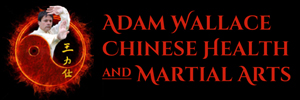Dao De Jing (The Scripture of The Way and Its Virtue) is the most influential and widely read book on Daoism, encapsulating the essence within just eighty-one short poetic chapters. Many uninitiated readers will miss this detail, but if they know Qigong, Taijiquan or other Chinese internal martial art, they will come to see that this book contains high-level Qigong theory too. We see references to Dantian breathing (“Concentrate your breath and attain the utmost softness. Can you become a baby?” – Ch. 10) and Emptiness (“Attain complete Emptiness, Hold fast to Stillness” – Ch. 16). To achieve health and longevity using Daoist health skills, the philosophy needs to be embraced, and the passages of Dao De Jing need to be applied to everyday living. Following Dao is to live a life with integrity, sincerity authenticity, seeking meaningful and profound experiences in life and nature, beyond the material and superficial “world of dust’. When you are truly immersed in the flow of Dao, the mysterious synchronicities and apparent “coincidences” manifest, and patterns you begin to notice are truly wondrous.
When you surrender and trust in Dao, living life with integrity, everything seems to work out at just the right time. What appears to be bad fortune, you find contains silver linings and new and better opportunities arise, creating good fortune. An example of this is the story of the Chinese farmer who had one old horse that ploughed his fields. The horse ran away one day, and all his neighbors gathered and said, “We’re so sorry for your bad luck”. He replied, “Bad luck. Good luck. Who knows?”. Then, shortly afterwards, the horse returned with a herd of wild horses which now belonged to the old man. The neighbors all came round to his house and said, “We’re so happy for your good luck”. He simply said, “Good luck. Bad Luck. Who knows?” The farmers only son was riding one of the wild horses one day when he was thrown violently off and broke his leg. “What bad luck!”, said all the neighbors. The old man just looked at them and said, “Bad Luck. Good luck. Who knows?” Shortly afterwards, the Emperor’s army came to the village looking to take all the able young men as soldiers for his war. The son was spared because he was crippled and an invalid. Everyone said to the farmer, “What good luck!” The old man shrugged and said, “Good Luck. Bad luck. Who knows?
The “De” in Dao De Jing refers to morality, virtue or ethics. There is an old Daoist saying, “Man Can Leave Dao, but Dao Never Leaves Man”. This means human beings can change their ways, and stray far from Nature, while Dao is always present and constant. Dao always comes first, but if a person loses The Natural Way, then virtue comes second best, so he must cling to morality, and ethical thought and behavior. Without morality Dao cannot ever be attained, no matter how much internal training and meditation is practiced
Laozi put forward the view which might be called a “paradox of virtue” – the phenomenon that a conscious pursuit of virtue can lead to a diminishing of virtue. The more virtuous a person becomes the more inflexible, impatient and judgmental he becomes, as others fail to live up to his high standards. Belief that one is virtuous, without self-monitoring, increases the chances of hypocrisy.
Daoism is based on the traditional Chinese virtues of simplicity and sincerity. To follow Dao is not simply a matter of observing any set of duties or prohibitions, but rather living in a simple and honest manner, being true to oneself, and avoiding the distractions of ordinary living, knowing sufficiency instead of greed, and being content, being humble instead of chasing fame and status. Like Buddha, Laozi found that which is prized and sought by the world – rank, luxury, glamour and accumulating, to be empty and worthless when compared to the ultimate value of a peaceful inner life and seeking harmony with Dao
In Wild Goose (Dayan) Qigong, one of the points of attention is moral integrity. It is believed a person’s mental state, and moral character and integrity, all impact the functional activities of the body and physical health. Grandmaster Yang Meijun of the Kunlun Wild Goose Qigong system wrote in 1992, “Cultivating morality, cultivating character and mind, is the unity of Buddhism and Daoism. To achieve righteous results in Buddhism is the cultivation of great wisdom, whilst in Daoism there are special abilities and longevity. In Dayan Qigong it is both of these. Do not do evil and all good will follow. Be open hearted, loyal and honest. No crazy talk or lying. Do not show off. Be modest to others. I hope that all students will follow the ancestral motto, truth and accuracy, truth and moral attainment. Cultivate merits and virtues and do good deeds for your society’. She had also stated that the purpose of Qigong lies not in developing the special abilities, like healing or opening the Sky-Eye, but in understanding Dao. She was also known to often say, “Dao De De Dao” or “Morality Gains Dao” (Through morality a person attains The Way). Wild Goose Qigong upholds the Five Constant Virtues of Ancient Chinese thought – Ren (ethics and perfect virtue free from selfishness), Yi (right conduct, loyalty and faithfulness), Li (respect, reverence and good manners), Shi (wisdom, knowledge, prudence) and Xin (truth and sincerity)
Taijiquan, as a martial art, adheres to the principle of Daoism with soft overcoming the hard. As Laozi said, “There is nothing in the world softer and weaker than water, and yet for attacking things that are hard and strong, there is nothing that can surpass it.” However, it really is more than just a martial art or, as it is more practiced today, a health exercise. It is a way of life, to cultivate moral character and inner peace. Within the Chen family tradition there are Twelve Principles of Respect (Dignity, Respect, Fairness, Integrity, Kindness, Righteousness, Courage, Nobility, Loyalty, Honesty, Trustworthiness, and Ethical Conduct), Twenty Rules of Conduct (forbidding abuse of power and oppressing the weak, performing in the streets for money, boasting, coveting ill-gotten gains, indulging in excessive drinking or lust, betraying our country etc.) and Twelve Prohibitions (such as deception, arrogance, hypocrisy, betrayal, malice, cruelty among others). These all provide a moral compass for practitioners, guiding them to live with integrity, respect, and humility, but also help prevent masters falling from grace as pride and arrogance follows great power and skill, and the adulation. If the individual allows himself to become corrupted, the skill itself can be brought into disrepute. Masters have a great responsibility to maintain integrity and be an example to their students. By adhering to these principles, one can truly embody the spirit of Taijiquan and achieve both physical and spiritual well-being. It is estimated Daoist health skills, like Qigong and Taijiquan, attract several million practitioners in US, and several hundred million throughout the world. According to Grandmaster Chen Xiaoxing of the Chen family Taijiquan, while a person can achieve a fundamental level copying the external form of Taijiquan, as the skill contains deep Chinese philosophy, there is a strong correlation between a person’s level of cultural literacy and the level of skill they are likely to attain.
There are essentially two goals in Daoism. The first involves living in accord with Nature. The second is the process of cultivation. The ego places a barrier between us and others, and us and Dao, so it must be dissolved until we become Selfless. This is to return to the Source, like a rain drop falling into the ocean. In death the physical body (coarse matter) is discarded, like a snake shedding its skin, and if the consciousness (pure energy) has been developed to forge a strong ‘astral body’ it is free to become One with the Universe and transcend death. So, Daoists meditate to develop the mind in the quest for immortality, but a healthy body is equally necessary otherwise all Qi is spent on healing, leaving little to none to develop the spirit. Esotericism aside, on a truly practical level those who follow ‘The Way’, and Daoist health regimens and breathing practices unquestionably attain longevity and in China 100 years in good health is tantamount to ‘Immortal’.
A final thought came to me while finishing this article and in typical Chinese paradox –
In Order to Grasp Dao
You First Must Let Go of Grasping.
– Adam Wallace


